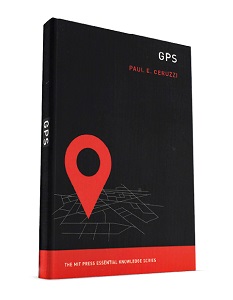Ceruzzi, another space historian, has perhaps understandably taken a historical approach to his overview of the Global Positioning System (GPS), which means that “The birth of GPS” itself does not appear until page 73 (of 186 text pages).
Strangely, he chooses this path despite recognising that “the story of GPS’s origins has been told”. What remains unexplained, in his opinion, is how a system of satellites designed for the US military has “become a part of ordinary citizens’ lives”; I would respectfully suggest that the author needs to widen his reading list. That said, for the target audience of intelligent non-specialists, this little book offers an easy introduction to GPS, backed up by further reading, chapter notes and an index. Much to its credit, it even includes a chapter on ‘European, Russian and other satellite systems’.
I can imagine that the entire series of more than 30 books looks good on any serious reader’s bookshelves – although that would represent quite a serious financial investment – but cherry-picking is fine [e.g. ‘Science Fiction’ was reviewed in ROOM #31]. The only proviso is that the series is unlikely to attract many younger readers because of its minimalist design ethos and the relative lack of illustrations.











